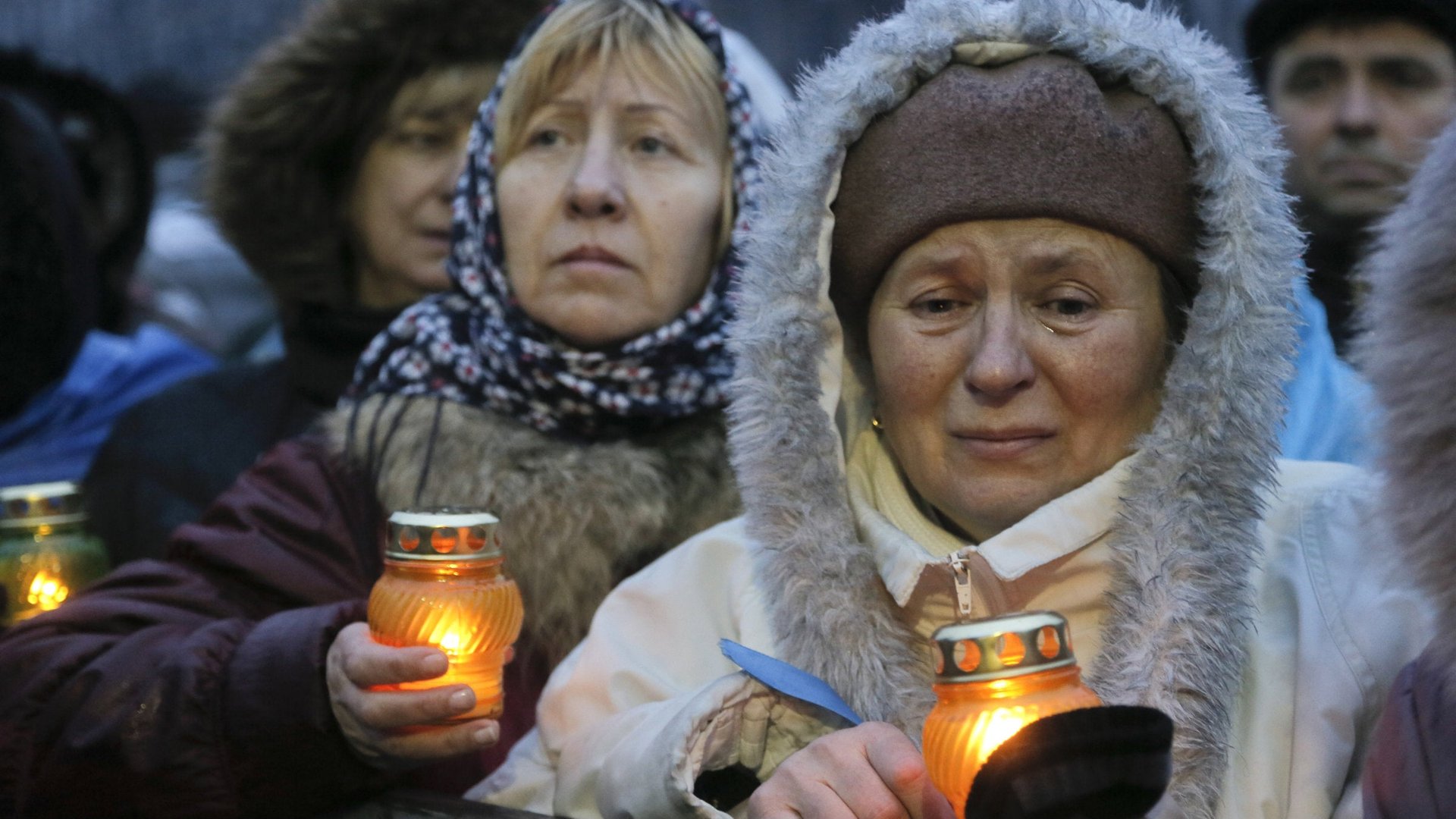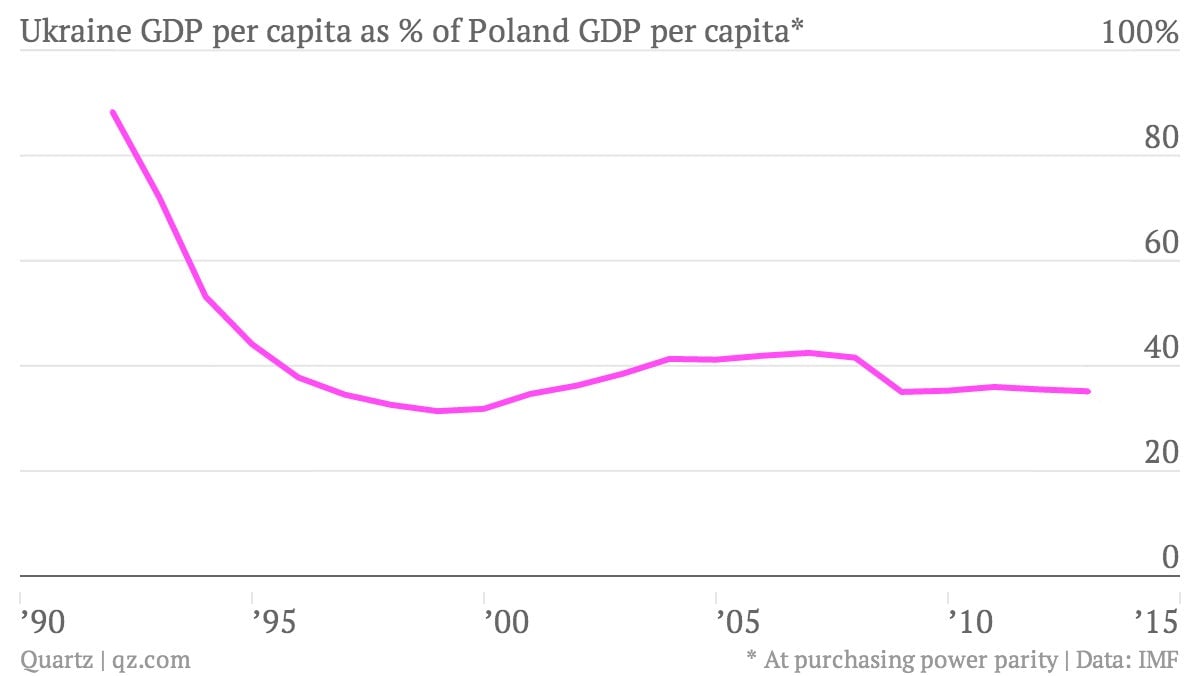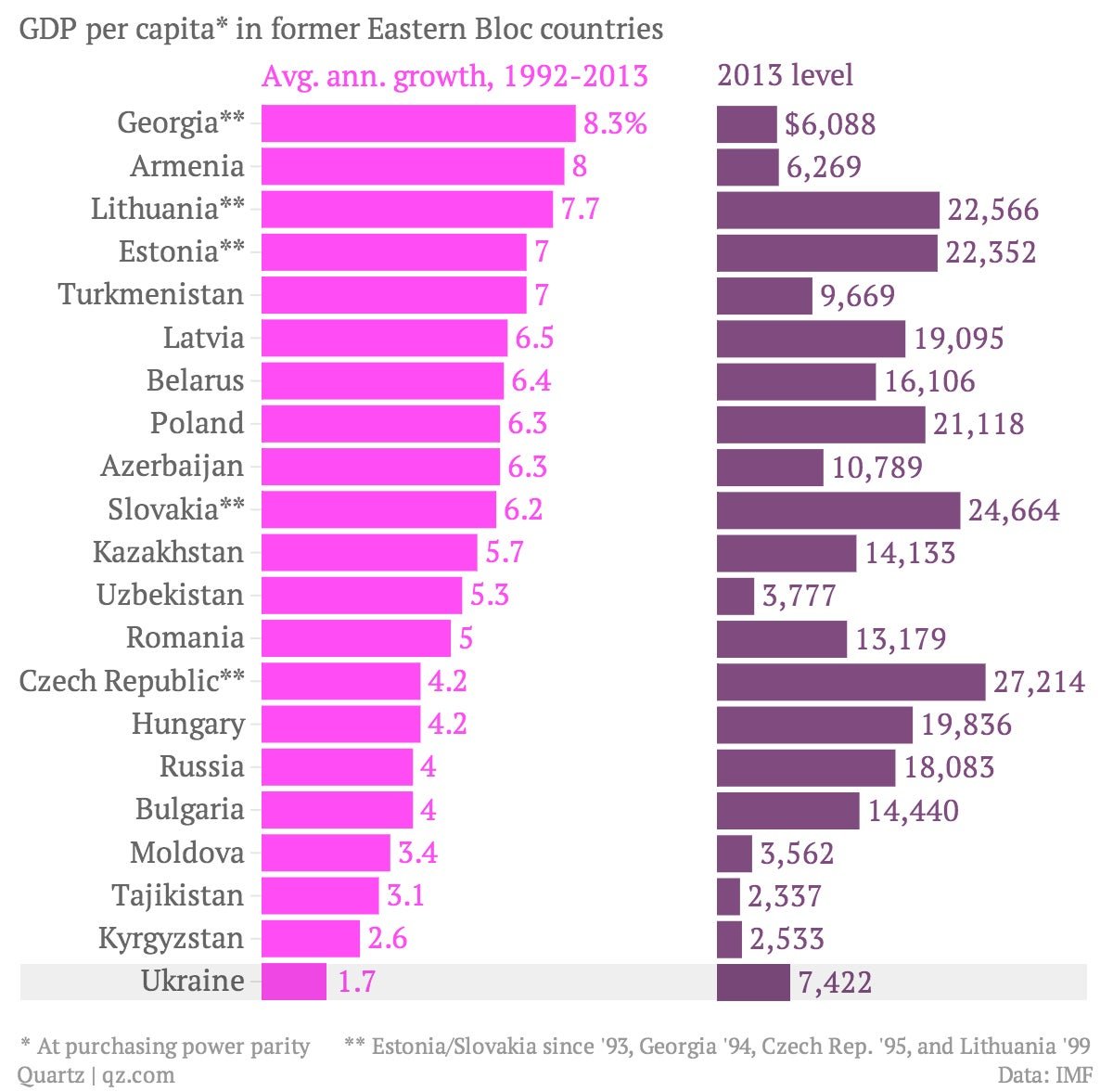Ukraine’s unrest stems from two decades of squandered post-Soviet independence
In 1992, the average Ukrainian’s income was around 90% of the average Pole’s. Both countries had recently stepped out from under the Soviet Union’s shadow, beginning the messy business of rebuilding and restructuring their post-communist economies. By the time Poland joined the European Union in 2004, Ukraine’s GDP per capita was only 40% of its western neighbor’s. The gap has widened even further since then:


In 1992, the average Ukrainian’s income was around 90% of the average Pole’s. Both countries had recently stepped out from under the Soviet Union’s shadow, beginning the messy business of rebuilding and restructuring their post-communist economies. By the time Poland joined the European Union in 2004, Ukraine’s GDP per capita was only 40% of its western neighbor’s. The gap has widened even further since then:

At purchasing-power parity, Poland’s GDP per capita has almost quadrupled since 1992, according to data from the IMF. Over the same period, Ukraine’s only grew by a bit more than 40%.
With the latest bouts of popular unrest breaking out in places as diverse as Kiev, Caracas, and Bangkok, attention has turned to various political and economic models that purport to predict the next places ripe for conflict. It goes without saying that a weak economy is generally one of the most important variables when it comes to anticipating the outbreak of unrest.
To this end, Ukraine stands out among the former members of the Eastern Bloc. Since the collapse of the Soviet Union, Ukraine’s GDP per capita has grown by less than 2% per year on average, lagging every other country in the region:

There is no simple explanation for Ukraine’s sorry economic record, although corruption and mismanagement play a prominent role. The protestors yearning for closer ties with the EU cannot fail to recognize the relative prosperity that the Visegrad countries, like Poland, now enjoy within the Brussels-based economic union.
Even more galling, perhaps, is the development of a place like Belarus, a Soviet-style dictatorship and stalwart member of the Russian-led Eurasian Union. Although a basket case in many ways, when measured by GDP-per-capita Belarus is now more than twice as rich as Ukraine; the two were on roughly equal economic footing in the mid-1990s. As a measure of how badly Ukraine has failed to live up to the economic expectations of its 46 million people, who rightfully lament how far they’ve fallen behind their neighbors, this is damning indeed.